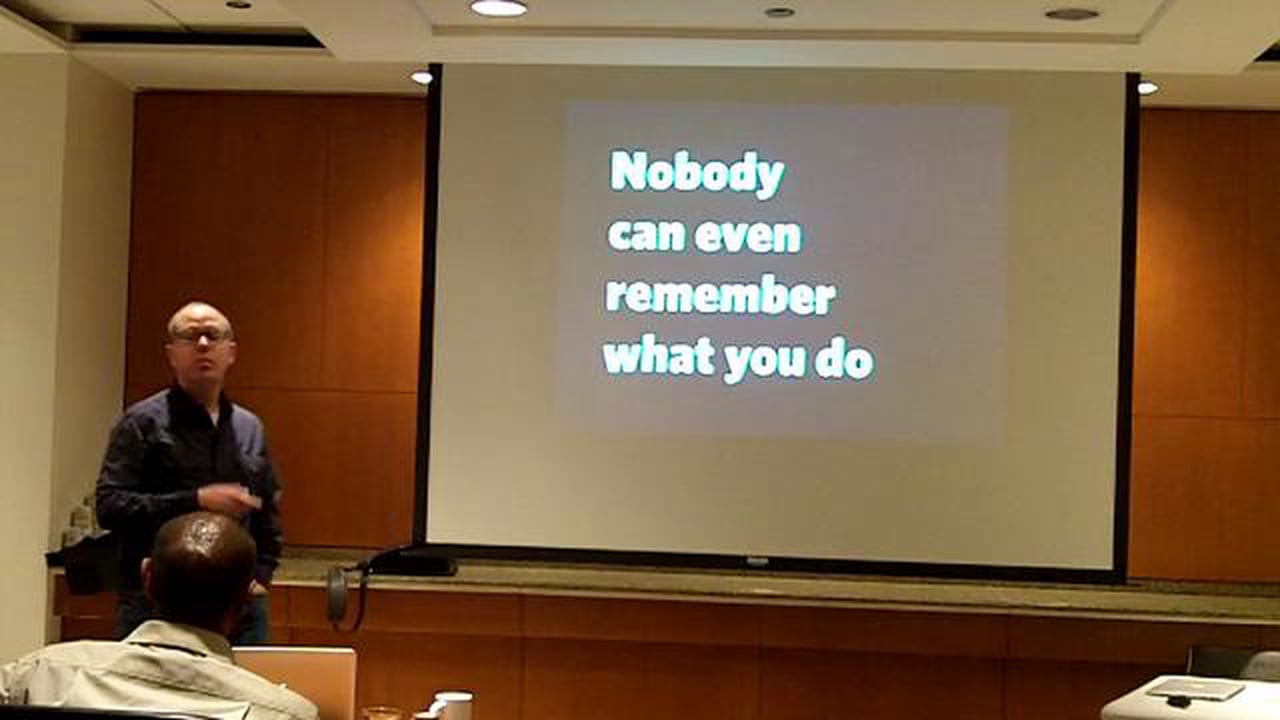
It is admittedly quite boring to read yet another piece that lays out the value that publishers bring to the world. Over the last few years, the world of academic publishing has turned into a political campaign, mirroring the lack of rational thought, hubris, entrenched positions, and political rhetoric that is supposedly the hallmark of politics, not academia. Amidst the bluster, we have all missed perhaps the most important piece of all.
Just as in the weirdly fascinating political campaigns that are unfolding before us this year, there is a lack of understanding by the publishing elites on all sides of shifting ideologies of an individual’s relationship to information on the web. If we were to listen carefully to the pulse of an academic, we would understand that most researchers just do not care about open access. They do not care that a publisher exists. They do not know, and in fact do not want, or need, to know the value that a publisher provides. They do not have an ideological position on library funding, or that authors should be able to publish for free and readers should be able to read for free. What does exist, in abundance, is a sense of ubiquity of access. There is an expectation of sipping coffee in one hand, with a device of some sort resting on your lap, and being able to cruise for information. If you are unable to find it quickly, there is then a level of frustration. If you find a bit of it, and then face a user experience equivalent to the torture you can experience of customer service telephone choice trees that take you down a twenty minute path, only to cut you off at the end of the tree, then what are you going to do? That’s right, you will most likely take the path of least resistance, which at the moment appears to be Sci-Hub. The criminality of Sci-Hub does not even enter your mind. The fact that you are reading an article, stolen from a library that has paid good money for the article, does not enter your mind. You now can do your work, and all else be damned.
Publishers just have not grappled with this sense of ubiquity. We see a similar sense of disconnectedness in the political campaigns for the Presidency in the US this year. On the one hand you have a conservative establishment that is somewhat disconnected from those they serve. On the other you have the so called radicals, who prey on those frustrations with simplistic and emotionally catchy messages of change and doing away with what we know and slogans such as the meaningless but hard to argue with “making America great again”.
Of course there are issues that academics care deeply about. An academic’s ability to think, to have information at hand so that they can do good research, to have a path to career success, and to be able to teach effectively are perhaps the driving forces that matter most. Academics in fact are not against publishers, and while perhaps not thinking deeply about what a publisher does during conscious hours, value publication, value impact, value the appreciation and interaction of their peers. I can guarantee you that when looking for a reference to a paper or scholar, at no moment in the quest is there a political thought about the value of open access, or indeed the value of a publisher.
Politicians and funders of course have their own priorities, and much of the drive to gold open access has no moral good attached to it, but rather a recognition that here is another way to shift the financial burden of Government to the individual, especially if that individual is not funded. Yes, OA is in many ways a libertarian argument, a move away from big government to the power of the individual. Yet just like in our political world today, when you place the burden on the individual, there is a fallacy at work. We rely on our infrastructure – the schools, the roads, trains, healthcare, environmental standards, etc. If a publisher is successful, no one will “see” what you do. Success, for the publisher is to be invisible. That’s a problem, because it allows people to devalue a publisher’s work, just as no one knows or sees what the health department does in restaurants, but enjoys the benefits of safe food without much thought.
In publishing you cannot just devolve the power to the individual without creating an infrastructure. Sci-Hub provides ubiquitous (illegal) access and decent user experience. In his excellent presentation at STM in Frankfurt in 2015, and here in his Scholarly Kitchen article entitled “Dismantling the Stumbling Blocks that Impede Researcher Access to e-Resources”, Roger Schonfeld elegantly showed a group of startled publishers how labyrinthine a user’s experience can be when trying to follow a path to find a paper he needed. Roger told us what deep down we know:
- The library is not the starting point
- The campus is not the work location
- Proxy is not the answer
- The index is not complete
- The aggregator is not current
- The link resolver is not omniscient
- The PC is not the device
- User accounts are not well implemented
Amidst rhetorical politics, both conservative and radical, the user – the academic – needs more from us. If we want to demonstrate the value of the publishing process we will not do it by telling it, rather through building tools around our valuable content that are just so indispensable that the value becomes apparent and open access and the lure of pirated sites become irrelevant.
As a final thought I leave you with Roger Schonfeld’s four takeaways, that I feel bear repeating:
- Understand use of your platforms and content in the academic library context
- Set expectations for how quickly content appears in discovery services and aggregators. Communicate this effectively with link resolver knowledge base partners
- Eliminate stand-alone mobile interfaces and interfaces
- Support a user account that allows you to better understand and serve researchers.
Discussion
28 Thoughts on "Publishing, Politics and Reason"
Astonishing! The first Kitchen post I cannot find anything wrong with.
Were you at one of my talks or is it just so obvious? (just kidding) I almost always start my presentations with
“I’m an amateur in infrastructure. I wouldn’t even be invited here, if the infrastructure wouldn’t be thoroughly messed up. Infrastructure that works is invisible. Instead of presenting here, I ought to be in my lab.”
Nobody cares about OA, publishers, infrastructure, etc. by themselves – we only start caring when things don’t work. It’s like referees in a ballgame: you only remember the names/faces of the bad ones (and/or the obnoxious ones).
The sooner the infrastructure experts all realize this and start fixing things, the sooner I can go back to my lab.
It is hard to see OA as libertarian when it is being driven largely by oppressive government mandates. Researchers are threatened with financial sanctions and journals with economic losses, all at government command. What is emerging is a new regulatory regime (the EU may finally begin to act this Friday).
I think that the Author has missed out on the ‘most important piece of all’. What about the ‘criminality’ of never paying the author for the content that s/he generated (irrespective of the direction of the income flow)? Most Academics understand and value the contributions of Publishers, but after being abused for so long by never being remunerated, the level of sympathy that they have for Academic Publishers earning massive profit margins is somewhat limited.
What crime are you alleging? Moreover, my understanding is that most authors are full time employees, typically of universities or laboratories. As such they are paid for the time spent writing their articles. If the publisher also paid them that would be double dipping.
So David, if you were to create a beautiful painting and hang in a public gallery and it sold, by your logic the money should go entirely to the gallery, should it not? If the gallery was to pay anything directly to you, that would be double dipping I guess.
Daniel: Weak analogies make weak arguments. If I were paid to do a painting whoever paid me would get some of the money from the gallery sale, unless they donated it. In the journal case that would be my employer. I would have no intrinsic right to that money. But articles are not paintings, are they?
You did not respond to my points. You changed the subject to a pointless analogy.
David – when did you become the arbiter of argument strength? I will let the reader decide. I actually do have a friend who is a painter and has sold paintings via public galleries – the idea that he would transfer any of these funds to his educational employer is ridiculous. No, articles are not paintings, but it is often necessary to bring traditional academic publishers outside of their ‘cognitive dissonance’ world to see how damaged their publishing model is.
I would gladly respond to your points if it is OA that you are referring to. OA is one option that might prove to provide opportunities for authors, but not with those publishers who charge extortionate APCs. For many (but not all) academic publishers, OA provides them with an opportunity to reverse the income flow, reduce risk by getting paid up front, and again…return nothing to the author nor the academic institutions supporting the process. Librarians are looking for ways to circumnavigate the worst of these academic publishers and Knowledge Unlatched is an example of this effort.
Academics have no expectations of trying to convince traditional publishers to change….they will look for alternatives and direct the change themselves.
I’m retired but continuing to publish and edit, but I now have a different perspective. Since I don’t see any reward at the end of the year in my annual increment, I write only about topics that interest me or where there is at least some minimal payment as is sometimes the case for editing a collection. If invited to submit an article, I also am more likely to negotiate doing it my way rather than the strict format imposed by the editor or the publisher. Saying no is much easier than it used to be even if my tendency remains saying yes.
Oh, but the author is paid. It is called tenure in an institution or promotion in a company. Do you think the author does not know from whom his bread is buttered? The goal is not to be paid in gold but in recognition.
BTW in my 40 plus years of publishing books and journals I never encountered an author who said the publisher abused him.
Harvey (and David), your argument might hold some water if the Academic Publishers financially contributed to the Universities that pay the academic’s salaries, but they don’t. The taxpayer and students (that financially support the Universities) are underwriting the existing Academic Publishing model. Academic Publishing pays nothing to those who generate the content, and nothing to the institutions that pay the salaries of Academics.
BTW, in my 2.5 decades of interaction with academics, I have personally met hundreds (if not thousands) of academics who are dissatisfied, not to say furious with the present publishing model, so I do not know what planet you are living on. There are even websites that illustrate public pledges made by Academics not to work with some traditional Academic Publishers (www.thecostofknowledge). Your statements amaze me and justify the ever increasing gulf between academics and traditional Academic Publishers.
Harvey (and David), your argument might hold some water if the Academic Publishers financially contributed to the Universities that pay the academic’s salaries, but they don’t.
Some of us would beg to differ:
http://www.aaupnet.org/aaup-members/membership-list
Dear David, I think that you need to get in better touch with your members. Looking over the first page of your list, I see Amsterdam University Press listed. The VSNU (Union of Dutch Universities) is furious with the status of its Academic Publishing partner. An interim agreement was reached, but it is all but pleased with the state of affairs in academic publishing.
I suspect that the VSNU is hardly representative of individual academics worldwide. Regardless, your statement that academic publishers don’t contribute to universities is clearly untrue, or at least far too sweeping a generalization. Here’s but one example:
http://www.ox.ac.uk/clarendon/about
I think your original comment also shines a light on a cognitive dissonance that colors many such arguments. Publishers consider themselves service providers. Researchers need certain publishing services in order to advance their careers, procure funding, etc. Most choose not to pay directly for those services, rather they defer payment to their colleagues, those who consume the literature. Publishers offer the services to the authors for free, taking all financial risks, and in return are granted a set of rights to try to use the resulting publication in order to earn back the costs incurred in the performance of the services (and some on top of that as surplus). If anything, authors are the ones getting something for free here.
That’s why gold OA makes sense in that it requires the author to pay directly for the services they’re receiving, rather than pushing those costs onto their fellow academics.
Now, as far as excessive profit margins, I generally agree with you, and would love to see academics pay more attention to who they’re publishing with, and instead lend better support to those that keep costs down and return those funds back into academia.
Having worked with academics in 130 countries, I can attest to the broad dissatisfaction in the academic community with academic publishing. You comments refer to University Presses – indeed as a result of their institutional affiliation with their ‘mother university’, they are able, to a certain degree, to revert income back to the university (but not the author). My comments were in particular focused on the commercial academic publishers, and in particular the ‘big five’ – cognitive dissonance reigns supreme in this domain.
I disagree with your comment that the ‘authors are the ones getting something for free’. Publishers are facilitators, and for this service they should also be remunerated but they are getting the entire pie and charging users royally for it. Without content (and peer review) Publishers have nothing to facilitate. You say that the Academics have no risk – it is the Academics who are risking their academic reputations by exposing their content to public scrutiny, putting their reputations on the line.
I agree that academics should pay more attention to whom they publish with. New models will no doubt arise in the near future which will provide the opportunity to transfer the facilitation role to the author, and the income associated with it.
The fact that the majority of authors voluntarily choose to publish with those commercial publishers would suggest that they have different priorities than your own.
Regardless, if you’d like to learn more about the rewards that authors receive from publishing academic papers (and the impact of money on the system in general), I highly recommend Paula Stepan’s book, “How Economics Shapes Science” (from a university press no less).
Also, stay tuned. We should have a post that takes a hypothetical look at paying journal authors and how it would impact things in the near future.
The fact that many authors publish with commercial publishers would suggest that they do not have a sufficient range of legitimate options to choose from.
Stay tuned indeed. Soon (Q3 2016), Authors will be provided with a practical (and not hypothetical) alternative so that they will be remunerated appropriately, and retain control of their work. Phase one will involve book authors, and afterwards journal authors. http://www.glasstree.com
Daniel: I assume you realize that the OA trend is for authors to pay to be published, not to be paid. (That is the planet I live on.) Your scheme sounds like a direct attack on OA! Best of luck.
I am curious as to where the money comes from to pay the authors. If from subscriptions then it drives their price up substantially. Perhaps you have a utopian solution, which resolves all these issues.
David, do university presses actually make money (which can be funnelled back to the university), or do they mostly rely on money from the university?
I can see why authors may feel somewhat disgruntled at the profits being made by *some* publishers, especially when these larger publishers often seem to offer a lower level of input towards improving the finished product. However, there are a not-insignificant numbers of publishers who are not-for-profit. The bottom line is that it costs money to publish articles. If publishers were to remunerate authors for their work instead of charging them, how on earth would the publication process be funded?
The authors are already contributing their work to the world of research. Why should they be asked to pay money as well?
Here’s a different analogy, more like a comparison. Popular and serious magazines (from Rolling Stone to the Atlantic and the New Yorker) charge for subscriptions, not for submissions. More equity in this model, I think.
The takehome message on Sci-Hub from the recent CSE meeting came from Cassidy Sugimoto, who stated that Sci-Hub sheds light not on ideology but rather on technological limitations.
I think that Cassidy’s soundbite is deeply incorrect. It makes it sound like publishers are somehow guilty of not innovating, which is false. Of course things would be simpler if everything were free and integrated and there was no security, but that is not a viable option. Sci-Hubs simplicity is based on theft.
How ironic – if indeed Open Access is a “libertarian” project, that it required action at the top of the government policy and funding supply chain to turn from manifesto to manifest destiny – and indeed, the prime beneficiaries are researchers at state funded educational institutions.
David: Some may quibble about your use of words or description of the current world, but the fact remains that your central premise that the readers don’t care about the process behind the material they read is valid. In short, what I gained was a reaffirmation of my contention that what readers and writers want is ease of doing what they have to do.


